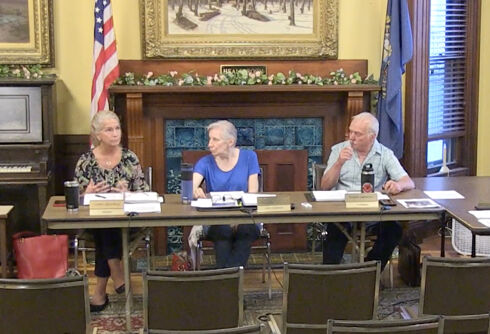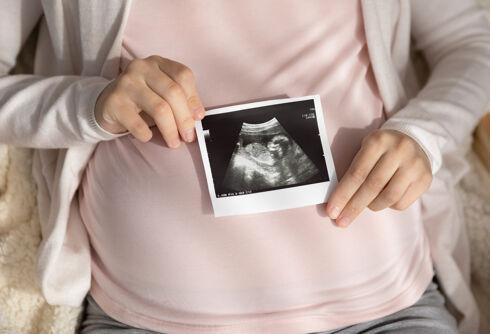A new report from the Williams Institute at UCLA reveals the legacy of HIV panic in the late 1980s continues to infect the justice system, with Black men disproportionately targeted by discriminatory laws. The report found that Black men make up the overwhelming majority of those prosecuted under Maryland’s HIV criminal law while making up a minority of Maryland’s total population.
The Williams Institute analyzed data from the state of Maryland about those individuals who have been prosecuted for an HIV-related offense under Section 18-601.1 of the Maryland Health Code. Previous analysis of Maryland’s HIV crime enforcement identified fewer than six cases, the study authors say, but the new report found at least 104 prosecutions in the state because of an allegation of an HIV-related crime from 2000 to 2020.
Related:
This immunologist is using nanotechnology for an HIV vaccine. It could change the epidemic forever.
Jui-Lin Chen is at the forefront of nanomaterial research for an HIV vaccine, but are queerphobic roadblocks in STEM fields slowing the pace?
So-called “HIV criminal laws” were rushed through state legislatures in the late 1980s and ’90s as panic over the AIDS epidemic swept the country, prosecuting individuals who “knowingly” transferred the virus that causes AIDS. Nearly two-thirds of U.S. states and territories have laws that criminalize people living with HIV.
Stay connected to your community
Connect with the issues and events that impact your community at home and beyond by subscribing to our newsletter.
Maryland’s “HIV criminal law” states “an individual who has the human immunodeficiency virus (HIV) may not knowingly transfer or attempt to transfer the human immunodeficiency virus to another individual.” Anyone “who violates the provisions of this section is guilty of a misdemeanor and on conviction” could face a fine of up to $2,500 and/or up to three years in prison.
Not only did the Williams report bring to light the extent of HIV prosecutions in Maryland, but it also confirmed previously documented bias against people of color living with HIV.
While 14 percent of Maryland’s population are Black men, that group comprises 82 percent of people accused in HIV-related criminal cases in the state.
Black people account for 30 percent of Maryland’s population and 71 percent of people living with HIV.
The report found that 10% of cases resulted in a guilty outcome on at least one HIV-related charge.
Sentencing information for convictions on 16 HIV-related charges showed just one of those sentences was for less than three years, the maximum allowed under the statute. The mean sentence length was 2.9 years.
“Maryland’s law was enacted in 1989 at the height of the AIDS crisis before we had effective treatments for HIV,” said Williams Institute Criminalization Project Director Nathan Cisneros, the study’s lead author. “We now have medical treatments that wholly eliminate the risk of transmitting HIV through sex, yet these advances are not reflected in Maryland law despite several reform attempts in recent years.”
In fact, arrests continue to the present, and prosecutions under the archaic law went up in the period ending in 2020: there were more cases from 2010 to 2020 than from 2000 to 2010.
Enforcement is highly concentrated by geography, the study found: Baltimore City alone accounted for nearly a third (32%) of all HIV-related cases in the state, followed by Montgomery County (19%) and Prince George’s County (18%). These three counties combined accounted for over two-thirds (69%) of all HIV-related cases and comprise the highest populations of Black people in Maryland.















